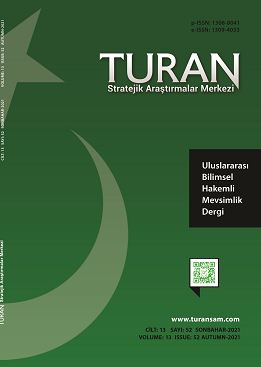İSLÂM SORUMLULUK HUKUKUNA GÖRE SÜRÜCÜDEN KAYNAKLI ZARARLARIN TESPİTİNE İLİŞKİN GENEL HÜKÜMLER
GENERAL PROVISIONS ON THE DETERMINATION OF DAMAGES ARISING FROM DRIVER ACCORDING TO ISLAMIC LIABILITY LAW
Author(s): Hasan YakutSubject(s): Law, Constitution, Jurisprudence, Islam studies, Transport / Logistics
Published by: Sage Yayınları
Keywords: Islamic Liability Law; Traffic Accidents; Driver; Liability; Compensation Liability;
Summary/Abstract: Islam has set forth rules since its beginning that will shed light on both the prevention and solution of many problems that have been or may be experienced regarding the rights, morals and procedure of way. It is forbidden to harm someone else's property and life, or to endanger oneself or others, as it is among the principles of Islam not to harm and cause harm. For this reason, the traffic rules, which have been set for the benefit of the society and to avoid harm, have been seen as one of the obligations to be followed by the individual. Traffic accidents have brought along religious, legal and moral responsibilities due to their consequences. Since compensation for damage is essential in Islamic law, liability arising from damage to life or property has been discussed in criminal and legal aspects. In terms of Islamic liability law, deaths, injuries, mutilations, pecuniary loss and intangible damages caused by traffic accidents are handled under diets, legal and religious atonement in terms of compensation. It was legitimate for those responsible individuals to be subject to the perceived penalties according to the types of torts, they are liable for compensation, especially the diet; on the other hand, they are held responsible with atonement and according to the type of the tort containing the criminal element. In Islamic liability law, which deals with personal torts, "destruction (itlaf)" is considered within the scope of "tortious act" in modern law, while he concepts of "teaddî" and "i'tida" are considered as the principle of "unlawfulness" in modern criminal law. It has been reported that 90% of traffic accidents are caused by factors of the driver. In terms of Islamic liability law, there are some basic criteria regarding the responsibility of drivers in traffic accidents. The driver is responsible for the vehicle. In particular, the driver is responsible and obliged to compensate for an accident that occurs due to the negligence, fault or mistakes of the driver; caused by parts of the mount, tools or things of vehicles; even if unintentionally due to the use of the vehicle outside the standard use. In case of an accident if the driver who is uncapable, child or is inconvenient to drive, or if the vehicle given to him/her is known to be problematic, the responsible is not the driver, but the one who delivers the vehicle.
Journal: TURAN-SAM
- Issue Year: 13/2021
- Issue No: 52
- Page Range: 262-277
- Page Count: 16
- Language: Turkish

